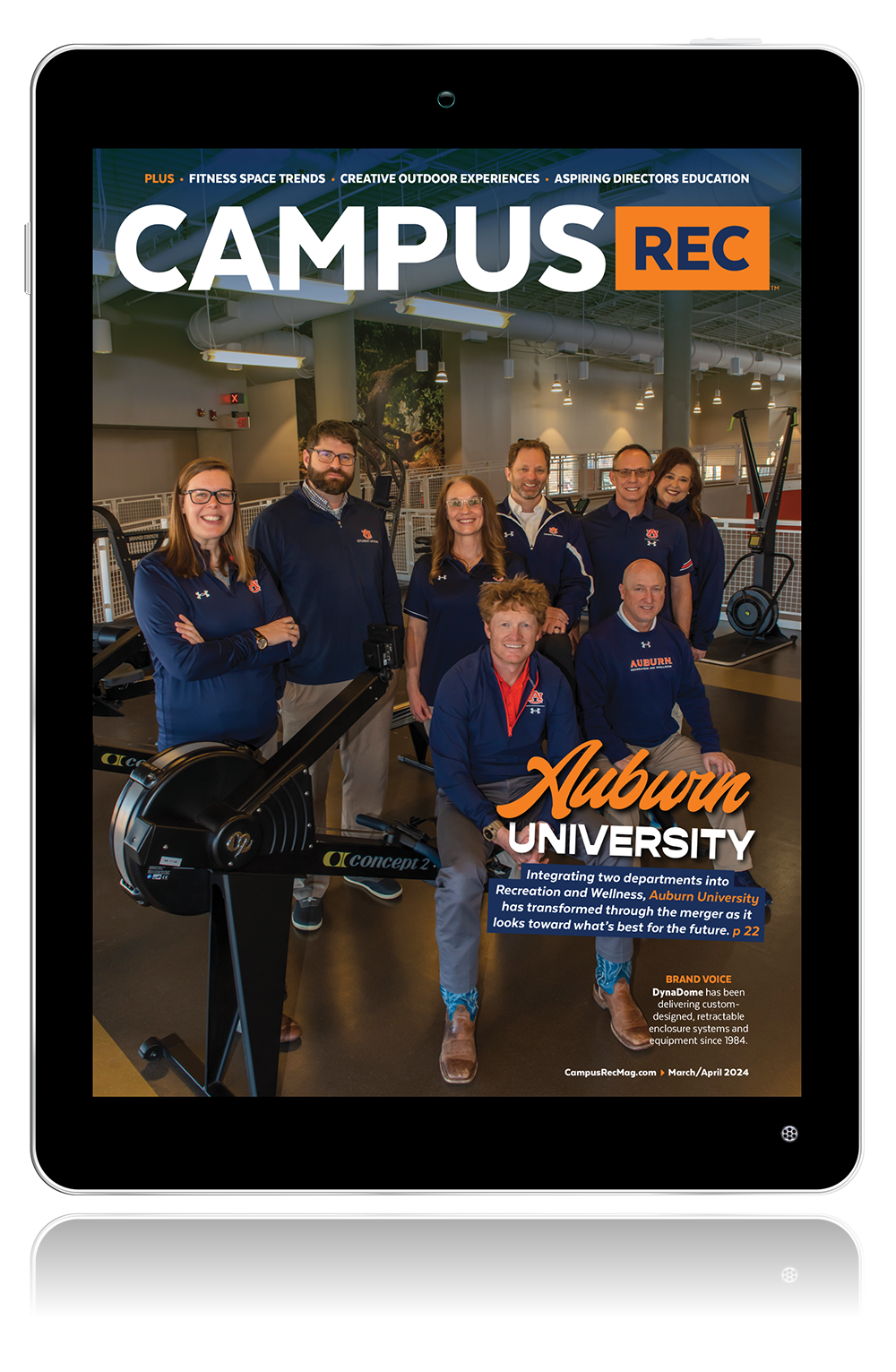Developing our student leaders for post-graduate success is something campus rec departments do best. Often, we find this development occurring through our club sport leaders and intramural student staff. However, at Denison College in Granville, Ohio, their aquatics department is developing their student leaders through a brand new training program spearheaded partially by their director of aquatics, Chris Crume. I say “partially” because as you’ll see below, much of this program was created by their student leaders for their student leaders.
How it Began
Three years ago, Crume began steps to completely revamp their head lifeguard training program. At small colleges it is not uncommon for recreation departments to be overseen by only one professional staff member and such is the case at Denison with Crume. Knowing his time and resources can sometimes be limited, he decided to utilize the great student leaders he had at his disposal to develop this new head lifeguard leadership program. This program has lead to a new in-depth leadership symposium centered around a summer reading of the book “Drive: The Surprising Truth About What Motivates Us” by Daniel Pink.
The three main aspects of motivation Pink discusses in his book that this leadership symposium focused on are purpose, autonomy and mastery. Delaney McRitchie, a head guard at Denison said, “During the leadership symposium, we learned everything from practical leadership skills to use while on duty, all the way to reinforced regulations regarding the pool operations and management. Taking the time to sit down as a team and learn these skills as a unified front has been so beneficial for me in rounding out my leadership skills as well as knowing that I have a team to depend on.” One of the incentives for head guards participating in this three day symposium was that they got to move in to their residence halls early. However, the biggest incentive is the skills they’ve acquired and will be able to call upon long after they graduate.
The Program’s Design
Crume and his student leaders have designed this program based on NIRSA guidelines on what skills employees are looking for. If you’re at a program that is thinking of making a change to your student training program, he recommends you start with getting the student buy-in. Your student leaders know the culture they currently have and what the culture should be.
To get your students on board, let them help design the culture they want and then sell them on the benefits of your training program. McRitchie said of these benefits: “This leadership development program has greatly enhanced my leadership skills. I am now more comfortable speaking and giving instructions to a large group of people, as well as being more comfortable with providing guidance and leadership to those who are asking questions and in need of guidance. I also feel that in the context of learning leadership under the pressure of an emergency, is a skill that will allow me to respond to situations that may come up in life.”
Crume said the best result of this shift in training has been the sense of ownership the head guards have taken over their training and the head guard program overall. In the training sessions this September, Crume said he only spoke for about two minutes and the remainder of the time the student leaders were facilitating the discussion. He even said one ambitious head guard looked over their emergency action plans and created entire scripts future student leaders can use during their presentations.
An Integral Part of the Process
The current head guards have become such an integral part of the process that they actually manage the hiring, interviewing and recommendation processes of hiring future head guards. The current head guards have created the current culture and community among the guard staff and know exactly what to look for in potential head guards. Of the culture that has been created, another head guard, Mathew Scott said: “I think our team is one of the most cohesive leadership teams I’ve been a part of. As head guards, we really set the tone for how our staff will see the pool and the job, and I believe just about all of us want our guards to feel comfortable and have a good attitude while they’re at work.“
Crume has already started thinking about potential next steps for the training program. He’s currently looking into their next summer reading selection: “Something with more teeth on leadership,” he said. He also wants to give his student leaders even more autonomy in their training, and they want to do even more of the training themselves.










